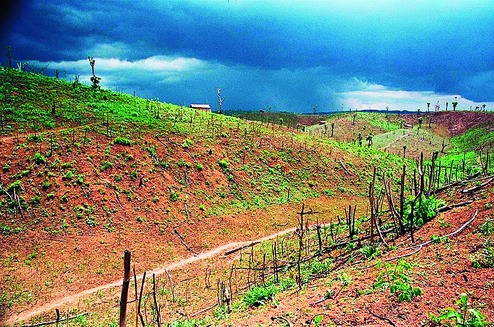
Guwahati/Aizawl: The Rome-headquartered International Fund for Agricultural Development (IFAD) is providing Rs 1,140 crores to Nagaland and Mizoram for better jhum cultivation practices to ensure productivity and support households to adopt alternative farming systems.
In these two states, the jhum-based upland farming system covers approximately 60 per cent of the total agricultural area.
Nearly 1,00,000 hectares of forest in Nagaland and 20,000 hectares in Mizoram are cleared for jhum cultivation each year.
The six-year project is coming up for approval at the 122nd session of the organisation in Rome on December 11-12. An official of the organisation said the proposed Fostering Climate Resilient Upland Farming Systems in the North East (Focus) project will help promote better jhum cultivation practices.
"The project will also support jhum farming households to adopt alternative farming systems, particularly sedentary farming. Along with more productive wet-terrace rice fields and improved livestock systems, the project will enhance farmers' incomes, reduce pressure on natural resources and increase resilience to climate change," the official said.
The productivity of ginger, one of the major commercial crops in the jhum system, declined from 5.8MT per hectare under a 15-20 year jhum cycle to 3MT per hectare under a five to 10-year jhum cycle.
In Nagaland, the project will be implemented in eight of the 11 districts and in Mizoram, in four of eight districts.
The project will promote activities to enhance production of Naga chilli, large cardamom and ginger in Nagaland, and Mizo chilli, turmeric and ginger in Mizoram.
The IFAD team also visited khonoma in Nagaland on Wednesday on a field trip, government officials said.
They visited the Alder-based jhum upland farming system at Khonoma village and the Molvum village pineapple farm.










